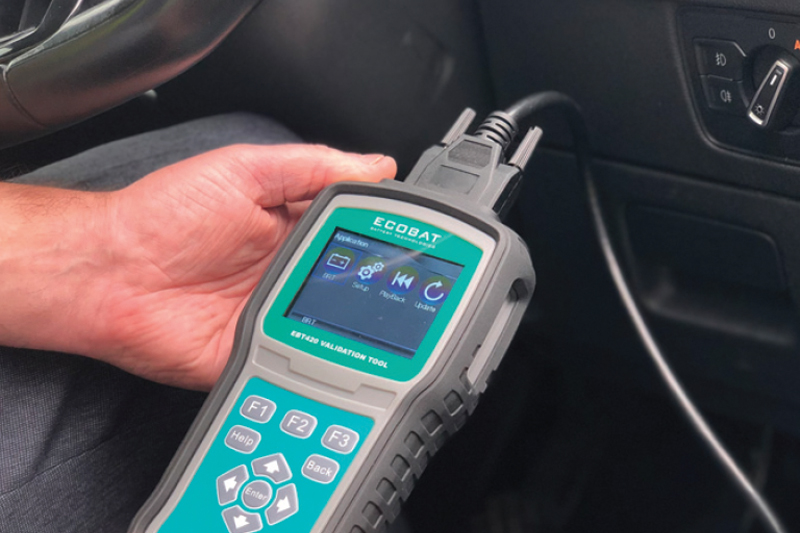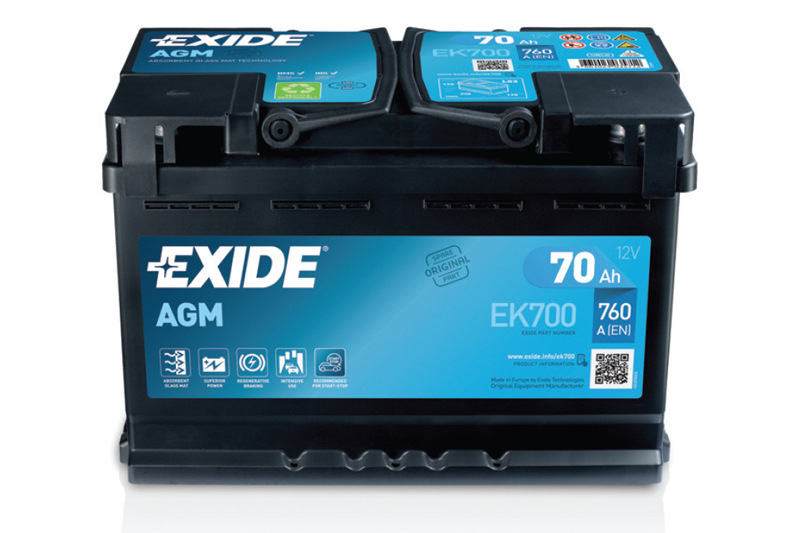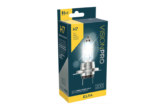
There are many messages that factors might want to pass on to their workshop customers, but to initiate a battery testing regime, which is applied to every vehicle that enters their premises, is one of the simplest, but potentially most profitable, according to Ecobat Battery (Ecobat) Product and E-commerce Manager, Andy Waite:
The underlying facts, assembled from data collected by us are revealing: 27% of the vehicles that enter the independent workshop either need their batteries recharged or reconditioned, and a further 11% need a replacement, which means 40% of the vehicles technicians service daily has a battery issue!
However, despite these facts, workshops rarely conduct battery testing, whether the vehicle is booked in for a MOT, annual service, or another repair. The knock-on effect is that 40% of roadside breakdowns are due to battery failure and the beneficiaries of these failures are not independent workshops, or the factors that supply them, but breakdown services.
Now for the good news: workshops that address the issue and bring in a battery testing policy can potentially grow their annual revenue by £30,000, simply from replacement battery sales, which is naturally business that would come through the factor and could be multiplied by the number of workshop customers they supply!
What do workshops need?
Since the AGM battery was adopted as the OE fitment for micro-hybrid (start/stop enabled) applications, Ecobat has been at the forefront in expressing the need for independent workshops to be up to speed when it comes to both the batteries and the associated technology present in these vehicles. To support them, we introduced the ONE BOX, a solution that consolidated all the equipment needed to test and install start/stop batteries into a single package.
With the ONE BOX package and a little training to enable technicians get the best from the equipment, workshops find that fitting these batteries correctly is not a complicated process and allows them to provide a more professional service, which improves customer satisfaction and reduces the risk of future warranty claims due to incorrect installation or use of an inappropriate battery.
The components brought together in the ONE BOX bundle include an EBT780 battery analyser to accurately assess the condition of the existing battery, an EBC8UK battery charger and OBD lead to support the vehicle’s ECU/data storage during the replacement process, and an EBT420 battery validation tool (top-right) to ensure the new AGM/EFB battery is correctly assimilated into the vehicle’s battery management system. However, the package can also be supported with signage and point-of-sale material.
That said, if they don’t want to develop their offering to this extent but still want to enjoy those potential revenue gains, a quality battery tester with a printer, like the EBT780 mentioned and a consistent procedure to test the battery of every vehicle they work on, is all they need.

How can workshops demonstrate the need for battery replacement?
First, they need to carry out a battery test and print out the result, then, irrespective of the outcome, they can highlight that they have carried out a health check on the battery and share the result. This is a win-win; if the battery is good, it allows the workshop to provide some good news, but if it’s bad, it means they’ve helped the customer avoid a roadside breakdown and can justify the need for a replacement.
How can factors help?
Factors should be able to supply their workshop customers with a quality conductance battery tester, such as the EBT780, because, in addition to lead-acid batteries, it can test AGM/EFB batteries for start/stop vehicles. It can also demonstrate the battery’s state of charge and state of health, as well as being able to print a test certificate, which can be used to advise the customer of the battery’s condition.







